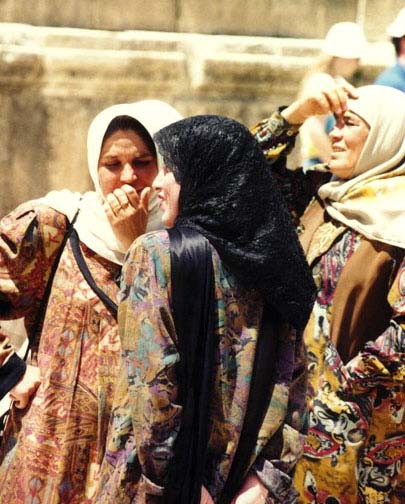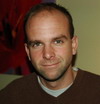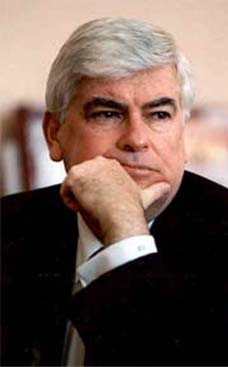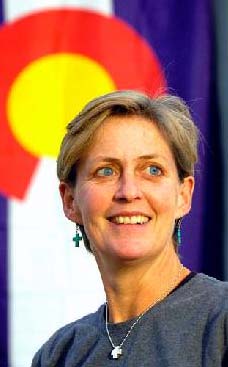2007.01.31: January 31, 2007: Headlines: COS - Jordan: Islamic Issues: Speaking Out: The Third Goal: The Arab Washintonian: Jordan RPCV Lee Wilbur writes: I want people in the United States to realize that the Muslim world is vast and varied
Peace Corps Online:
Directory:
Jordan:
Peace Corps Jordan :
Peace Corps Jordan: Newest Stories:
2007.01.31: January 31, 2007: Headlines: COS - Jordan: Islamic Issues: Speaking Out: The Third Goal: The Arab Washintonian: Jordan RPCV Lee Wilbur writes: I want people in the United States to realize that the Muslim world is vast and varied
Jordan RPCV Lee Wilbur writes: I want people in the United States to realize that the Muslim world is vast and varied

When I turn on my American television and see Muslims, I feel scared. I see acts of violence. I hear rants of anger and hate. I see war and threats and tempers boiling. You see, Muslims do not have a peaceful face on my American TV. They do not appear to be happy people. I feel these images and this anger, over and over, again and again, every time I turn on my American television. Those of us with positive cross-cultural experiences should be vocal in counteracting stereotypes and assumptions. We can do this by simply sharing our experiences. I, for example, share stories such as the ones in this article in hopes of counteracting negative feelings and misperceptions acquired through the media. Though I do not reach audiences as wide as those reached by CNN and Fox News, I feel blessed to be able to spread positive news from the Muslim world to anyone who will listen.
Jordan RPCV Lee Wilbur writes: I want people in the United States to realize that the Muslim world is vast and varied
The Peace I found
I am concerned. When I turn on my American television and see Muslims, I feel scared. I see acts of violence. I hear rants of anger and hate. I see war and threats and tempers boiling. You see, Muslims do not have a peaceful face on my American TV. They do not appear to be happy people. I feel these images and this anger, over and over, again and again, every time I turn on my American television.
These images are shocking to me. I do not doubt that they are real. Several parts of the Muslim world are experiencing unimaginable suffering from war, death, poor human rights and fear from social insecurity. What I know, however, is that these images of anger and hate are not universal traits across the Muslim world. I know this because I recently returned from Muslim lands and I experienced quite the opposite.
I traveled through Pakistan, lived in Jordan, and worked in Morocco. In these places, I witnessed the euphoria of simple happiness; a sincere joy of living that I had never before seen in any other part of the world. I laughed alongside new friends from these Muslim countries who took me into their homes and into their lives as were I a member of their family. I would like to share with you a few anecdotes of my experiences with strangers as testimony to the positive feelings that abound in the contemporary Muslim world.
While visiting Lahore, a spectacular city in eastern Pakistan famous for its art, architecture, cuisine, and hospitality, I noticed that a man was following me at a rather fast pace. It was night and I became worried that he might want to do me harm. He began waving at me. I turned onto a busy street and increased my pace. After a good 15 minutes of brisk walking down a well lit main street, I thought I had lost him. I sat down on a bench for a rest. Within a couple minutes I saw him coming up, walking fast. He appeared out of breath and called out to me to stop.
I jumped up and took off again, hoping to loose him. It didn’t work. Finally I came to a dead end. I was trapped. My only option was to confront this man. When he got closer to me, he said to me in a very polite albeit exhausted voice, “sir, you dropped your book back there.” He handed me my book, wished me a lovely evening, and turned to walk the couple miles back to where our chase had started. I was left standing there in awe, feeling ashamed of my assumptions and amazed at his perseverance and loyalty to a cause.
Some months later on a sunny morning in the Jordan River Valley, the lowest spot on earth, I boarded a local bus on my daily commute to work. A man in traditional Muslim robes began preaching to the bus audience, encouraging them to pray and to attend the mosque. When he noticed me, an obvious Westerner, his attentions suddenly turned and focused on me. I did not comprehend all that he was saying. I felt uncomfortable and decided to get off at the next stop. I was scared of that which I did not understand and for being a foreigner. This preacher’s gaze on me only intensified as his voice grew louder. When the next stop came, I prepared to pay the driver my bus fare. The man who had been preaching got in front of me, paid my fair for me, and said to me in Arabic, “Welcome to Jordan. Our home is your home and I hope you love it here.”
Bewildered, I got off the bus and felt ashamed of my assumptions. I took solace in my punishment of the long walk up that hot dusty road which I normally only saw from the bus window. Later that day, I found the bus driver and asked him what that man had been preaching about. The driver said that he was preaching about how taking care of strangers, regardless of their background or religion, was an utmost duty for all Muslims. I was seeing similar behavior all around me and I felt humbled to be in the presence of these good and kind people.
In late 2004 I moved to Morocco for work as a small business development volunteer with the US Peace Corps. I rented a small house in the old section of a strikingly picturesque town at the foot of the Atlas Mountains. I was the only American living in this town of 50,000 people. When I arrived, I did not know anyone. No one, however, treated me as a stranger. Everyone I met invited me into their homes for tea and for jovial lunches of luscious cous-cous. They asked about my family, my country, and how I liked Morocco. Many people asked me how Americans viewed Muslims. They were also concerned with the images they saw on their televisions.
I stayed in that Moroccan town for 2 years. I made close friends whom I grew to love. People took care of me and I tried my best to take care of them. During this time I only felt uncomfortable being an American when I watched TV and saw unpleasant images from and harsh criticisms about the United States. People, however, never made me feel ashamed for being an American or for not being Muslim. Their genuine warmth and welcoming continually showed me the good feelings that exist across the Muslim world.
How contrary these personal experiences are to the images I see on my television. Of course happiness does not often make the evening headlines; death always does. Perhaps it is not the media’s role to provide information about daily life across the world. I do not complain, for example, that the media rarely tells me about life in New Zealand, Bhutan, or Bermuda. I am only left to assume that life in those countries has its trials and its joys similar to life in the United States and in much of the Muslim world.
What I want is for people in the United States to realize that the Muslim world is vast and varied. In my experience it is also exceptionally welcoming. Since we do not see the everyday life in much of the Muslim world in the media, I encourage us to seek it out. Using the internet, we can easily contact people all over the world – perhaps their televisions give them as negative an imagine about us as ours does about them. We can also meet people in our communities and discuss images and assumptions we acquire from watching television. By reaching out in this way, we will gain a personal and more balanced image.
Most importantly, those of us with positive cross-cultural experiences should be vocal in counteracting stereotypes and assumptions. We can do this by simply sharing our experiences. I, for example, share stories such as the ones in this article in hopes of counteracting negative feelings and misperceptions acquired through the media. Though I do not reach audiences as wide as those reached by CNN and Fox News, I feel blessed to be able to spread positive news from the Muslim world to anyone who will listen.
About the Author

Lee Wilbur is an intercultural relations consultant. He served as a Peace Corps Volunteer in Jordan in 2002 and in Morocco from 2004 to 2006.
Links to Related Topics (Tags):
Headlines: January, 2007; Peace Corps Jordan; Directory of Jordan RPCVs; Messages and Announcements for Jordan RPCVs; Islamic Issues; Speaking Out; The Third Goal; Peace Corps Morocco; Directory of Morocco RPCVs; Messages and Announcements for Morocco RPCVs
When this story was posted in January 2007, this was on the front page of PCOL:





Peace Corps Online The Independent News Forum serving Returned Peace Corps Volunteers
 | Ron Tschetter in Morocco and Jordan
On his first official trip since being confirmed as Peace Corps Director, Ron Tschetter (shown at left with PCV Tia Tucker) is on a ten day trip to Morocco and Jordan. Traveling with his wife (Both are RPCVs.), Tschetter met with volunteers in Morocco working in environment, youth development, health, and small business development. He began his trip to Jordan by meeting with His Majesty King Abdullah II and Her Majesty Queen Rania Al Abdullah and discussed expanding the program there in the near future. |
 | Chris Dodd's Vision for the Peace Corps
Senator Chris Dodd (RPCV Dominican Republic) spoke at the ceremony for this year's Shriver Award and elaborated on issues he raised at Ron Tschetter's hearings. Dodd plans to introduce legislation that may include: setting aside a portion of Peace Corps' budget as seed money for demonstration projects and third goal activities (after adjusting the annual budget upward to accommodate the added expense), more volunteer input into Peace Corps operations, removing medical, healthcare and tax impediments that discourage older volunteers, providing more transparency in the medical screening and appeals process, a more comprehensive health safety net for recently-returned volunteers, and authorizing volunteers to accept, under certain circumstances, private donations to support their development projects. He plans to circulate draft legislation for review to members of the Peace Corps community and welcomes RPCV comments. |
 | He served with honor
One year ago, Staff Sgt. Robert J. Paul (RPCV Kenya) carried on an ongoing dialog on this website on the military and the peace corps and his role as a member of a Civil Affairs Team in Iraq and Afghanistan. We have just received a report that Sargeant Paul has been killed by a car bomb in Kabul. Words cannot express our feeling of loss for this tremendous injury to the entire RPCV community. Most of us didn't know him personally but we knew him from his words. Our thoughts go out to his family and friends. He was one of ours and he served with honor. |
 | Peace Corps' Screening and Medical Clearance
The purpose of Peace Corps' screening and medical clearance process is to ensure safe accommodation for applicants and minimize undue risk exposure for volunteers to allow PCVS to complete their service without compromising their entry health status. To further these goals, PCOL has obtained a copy of the Peace Corps Screening Guidelines Manual through the Freedom of Information Act (FOIA) and has posted it in the "Peace Corps Library." Applicants and Medical Professionals (especially those who have already served as volunteers) are urged to review the guidelines and leave their comments and suggestions. Then read the story of one RPCV's journey through medical screening and his suggestions for changes to the process. |
 | The Peace Corps is "fashionable" again
The LA Times says that "the Peace Corps is booming again and "It's hard to know exactly what's behind the resurgence." PCOL Comment: Since the founding of the Peace Corps 45 years ago, Americans have answered Kennedy's call: "Ask not what your country can do for you--ask what you can do for your country. My fellow citizens of the world: ask not what America will do for you, but what together we can do for the freedom of man." Over 182,000 have served. Another 200,000 have applied and been unable to serve because of lack of Congressional funding. The Peace Corps has never gone out of fashion. It's Congress that hasn't been keeping pace. |
 | PCOL readership increases 100%
Monthly readership on "Peace Corps Online" has increased in the past twelve months to 350,000 visitors - over eleven thousand every day - a 100% increase since this time last year. Thanks again, RPCVs and Friends of the Peace Corps, for making PCOL your source of information for the Peace Corps community. And thanks for supporting the Peace Corps Library and History of the Peace Corps. Stay tuned, the best is yet to come. |
 | History of the Peace Corps
PCOL is proud to announce that Phase One of the "History of the Peace Corps" is now available online. This installment includes over 5,000 pages of primary source documents from the archives of the Peace Corps including every issue of "Peace Corps News," "Peace Corps Times," "Peace Corps Volunteer," "Action Update," and every annual report of the Peace Corps to Congress since 1961. "Ask Not" is an ongoing project. Read how you can help. |
Read the stories and leave your comments.

Some postings on Peace Corps Online are provided to the individual members of this group without permission of the copyright owner for the non-profit purposes of criticism, comment, education, scholarship, and research under the "Fair Use" provisions of U.S. Government copyright laws and they may not be distributed further without permission of the copyright owner. Peace Corps Online does not vouch for the accuracy of the content of the postings, which is the sole responsibility of the copyright holder.
Story Source: The Arab Washingtonian
This story has been posted in the following forums: : Headlines; COS - Jordan; Islamic Issues; Speaking Out; The Third Goal; COS - Morocco
PCOL36041
19
Lee is just right! I met him in Morocco while I was a foreign student there. I spent 4 years in Morocco.In my first three years I did not leave Morocco at any moment. So, I do hope to be in good position to say that Lee's piece of article is true and describes Morocco as it is. I love this country even if there are many changes that its authorities have to make before too late.The people of Morocco is wonderful. They need positive and genuine reforms.Reforms that won't deny their positive values. Some Americans must get rid of pre-conceptions and seek to discover the muslim world as it is.
Muslims, on their part, must stop over-generalizing and taking all the Westerners as their potential enemies. I am currently living in the U.S, and I do appreciate the 'Islamic' values that I find here. In fact, if you read the Koran ( What I do as a Muslim), you will discover that a lot good principles and behaviors such as honesty, kindness that Westerners value are recommended by Islam. Please, read the Koran to discover how we Muslim are forgetting the essence of the Koran. The Koran is a set of good manners that any Muslim should put into practice. Today, the Koran has become, for many Muslims, a blessing. They kiss it or put it on their head to seek blessing from the LORD.True, the Koran is blessed.Yet, we have to bear in mind that its purpose is to educate, to reform, to take mankind to the most valuable behiavors, to teach him tolerance and open-mindedness.
Lee I love your article!!!!!!!!!!!!!!!!!!!!!!!!!




















